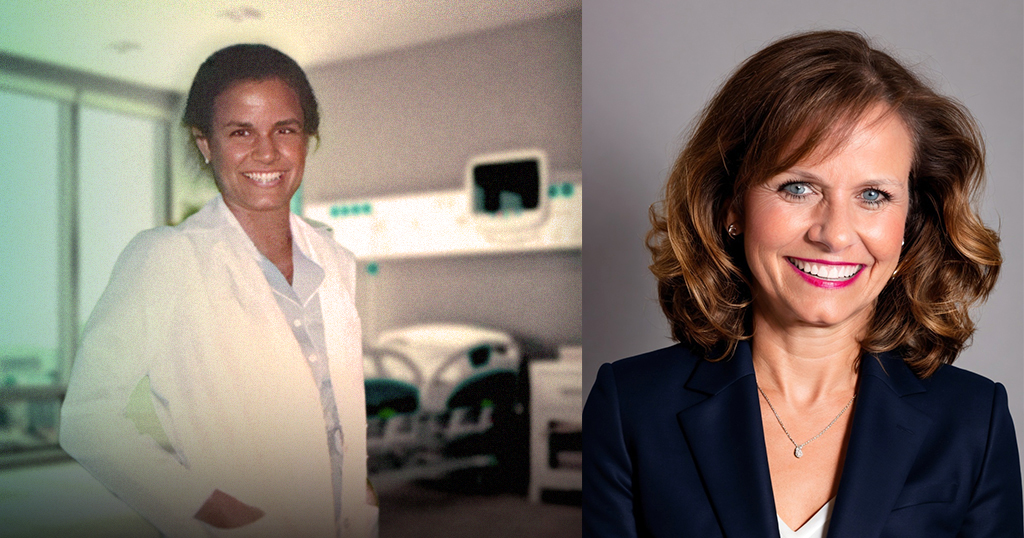I still remember the moment that changed everything. As a nurse intern at Pontiac General Hospital, I was working on the psychiatric floor when I met a young man struggling with depression. He was hesitant to open up about his struggles, but I spent a long night with him, gradually building trust until he finally felt safe enough to share his story. That night taught me something that thirty years in the healthcare industry has only reinforced: whether you’re serving patients directly or supporting healthcare organizations, success comes down to understanding human needs.
My journey from bedside nursing to healthcare leadership might seem unusual to some. But co-leading a healthcare marketing organization has shown me that the same principles that make great patient care – empathy, understanding, and trust – are essential for successful business partnerships in healthcare.
The Business Impact of Empathy and Human Connection in Healthcare
As a nurse, I learned to trust that gut feeling when something wasn’t quite right with a patient. Now, working with healthcare organizations, I see how this same intuition applies to business challenges. When a health system is struggling with market positioning, when a healthcare technology company needs to better communicate their value proposition, or when a life sciences firm is trying to connect with clinicians – success often lies in understanding the patient experience and human elements behind the business challenge.
Data-driven analytics are crucial in healthcare – we all need metrics to demonstrate ROI and measure outcomes. But the organizations that truly excel are those that combine robust data with deep insight into their stakeholders’ needs, pressures and goals.
How to Build Trust in B2B and B2C Healthcare Marketing
Healthcare organizations often face challenges with differentiation in their marketing strategy and communications. I understand why – regulatory constraints, legal considerations, and corporate messaging guidelines can make it tempting to stick to safe, conventional initiatives. But in my experience, the organizations that stand out are those that dare to be genuinely human in their business relationships.
We recently worked with a healthcare technology company that transformed their approach to enterprise sales. Instead of leading with features and specifications, they started sharing stories about how their solutions affected patient care and clinical workflows. The response was remarkable – not just from potential clients, but from stakeholders across the healthcare ecosystem who recognized their own challenges in these narratives.
Creating Content That Resonates with Healthcare Decision-Makers
Today’s landscape demands both strategic thinking and authentic connection. Healthcare decision-makers are sophisticated consumers of content, looking for partners who understand their complex challenges. Whether it’s a conversation with a hospital CEO about market dynamics or a LinkedIn post about healthcare innovation, the principles remain the same: demonstrate deep industry knowledge while never losing sight of the human impact.
This isn’t about following B2B or B2C marketing trends or chasing algorithms. It’s about sharing insights that help healthcare organizations make better decisions. It’s about fostering professional communities where healthcare professionalss can learn from each other. It’s about using our platforms to advance healthcare while driving business growth.
The Future of Healthcare Marketing and PR
As I reflect on the evolution of healthcare partnerships, I’m both excited and humbled. The sophistication of marketing technology is incredible, but the fundamentals haven’t changed. Success still comes down to understanding organizations, building trust and providing clear value to healthcare consumers.
To my fellow healthcare leaders: never forget that behind every business challenge, there are people working to improve healthcare services and delivery. Every partnership we forge, every solution we implement, has the potential to enhance patient care. Let’s ensure our business relationships always honor that responsibility to provide high-quality care.
And to healthcare organizations evaluating potential partners: look beyond the standard capabilities presentations. Ask about their understanding of healthcare’s complexities and their commitment to your success. The best partnerships, like the best patient care, are built on deep understanding, trust and a genuine commitment to advancing healthcare.
The future of healthcare isn’t just about new technologies or sophisticated marketing platforms – it’s about bringing authentic human connection back to business relationships, one partnership at a time.
